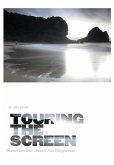In Korean director Kim Ki-duk's films, people don't talk; they hit. Relationships are always frontal, direct, decoded, never mediated through language which would neutralize its violence. Kim Ki-duk's heroes are presented in idyllic and luxurious landscapes, worthy of romantic postcards sent from Korea. Yet the best dramas are played between the flourishing mountain crests and the blue surfaces of the lakes and oceans. Through a filmography as injected with blood as on the edge, Kim Ki-duk shows the still-oozing wounds of a Korean society maltreated by its history with an art of precision and a staging of suffering which is all Far-Eastern refinement. Kim Ki-duk favours independence in his way of working: small budget, fast shooting and strong personal implications which lead him to create his own film sets and accessories. Kim Ki-duk (born 1960) is today counted among the most prominent directors of the new movement of contemporary cinema, while resolutely remaining outside the cinema industry. Ever since his very first films, he has been noticed at international film festivals such as Berlin (Golden Bear for best director, for Samaritan Girl), Locarno (Coast Guard) or Venice (Silver Lion for 3-Iron). He won award at 2011 Cannes Festival for Arirang and a Golden Lion in 2012 for Piet�.
Hinweis: Dieser Artikel kann nur an eine deutsche Lieferadresse ausgeliefert werden.
Hinweis: Dieser Artikel kann nur an eine deutsche Lieferadresse ausgeliefert werden.








